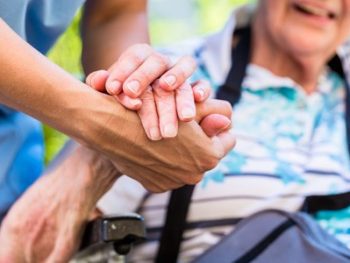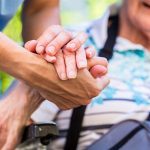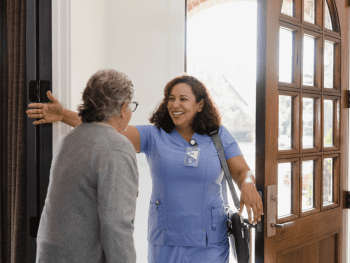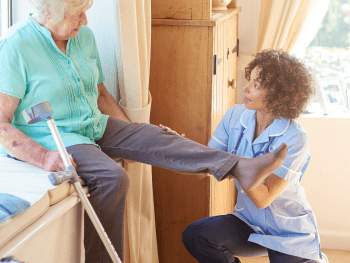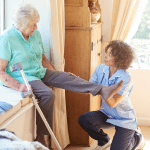 A New Year is the perfect time to kick-start a new beginning and finally achieve the things you’ve always wanted to get around to. Whether you’re yearning to learn a new skill, improve on your existing skills, better yourself as a person, or even overcome some obstacles, what better way to push yourself than with a New Year’s challenge.
A New Year is the perfect time to kick-start a new beginning and finally achieve the things you’ve always wanted to get around to. Whether you’re yearning to learn a new skill, improve on your existing skills, better yourself as a person, or even overcome some obstacles, what better way to push yourself than with a New Year’s challenge.
Why take a New Year’s Challenge?
New Year’s resolutions are great; they not only encourage us to reflect on the last year and see what progress we have made, they also inspire us to change and make better choices for the year ahead. But ask yourself this: how often do you achieve your New Year’s resolution?
Resolutions are too easy to break. No one is watching you or cheering you on, and there’s simply nothing on the line that drives you to accomplish them. If you really want to achieve something real, a New Year’s challenge is the way forward. A challenge has more urgency than a resolution and if you have a competitive side, challenges push you and make you rise to the occasion.
How to Prepare for a New Year’s Challenge
Preparing for a New Year’s challenge isn’t as simple as saying, “this is what I want to do” and then doing it. These are the things that will help you achieve success:
- The reason people take a New Year’s challenge is to improve—either you want to save money, adopt a healthier lifestyle, etc. Whatever your reason, you need to remember that you have a reason. Your reason is your motivation. Write your reason down and stick it somewhere where you will see it every day such as the bathroom mirror.
- You can also get a challenge buddy-If you want to train for a marathon or learn a new language-those are great challenges to do with friends. By working together, you can easily motivate each other.
- If time is an issue, set an alarm on your phone every day and label it as ‘challenge time’, that way you will never forget to do what you set out to do.
- Break your goal into smaller chunks (aka mini-goals). If your goal is a big task, such as writing a book, you should set daily limits (like how many words you will write each day) that eventually add up to achieve your overall goal.
- Research says it take on average 66 days to change a habit, but there are some who manage to kick bad habits in as little as 18 days. So if you want to make a change, we recommend choosing a challenge that lasts between 30 and 100 days.
Now that you are mentally in the zone, let’s look at some popular challenge ideas for you to choose from!
30-Day Challenge Ideas
A 30-Day challenge is a great idea for those wanting to try something new, different, healthy, or enjoyable, just for the fun of it. Here are some popular ideas:
- Give up buying coffee. Or give up coffee completely!
- Go 30 days smoke/vape free
- Make your own lunches for work
- De-clutter your house. (Choose a room a week and throw out all those unused or expired items)
- Take a social media detox for 30 days
- Give up sugar
- Give up meat-or try Veganuary!
- Drink 2 liters of water a day
- Take a photo a day-photography challenge
- Learn a language using Duolingo or Babble
- Go 30 days without snacking
- Give up a bad habit such as biting your nails
- Watch every sunset
- Read 30 minutes a day
- Try intermittent fasting
- Sweat every day: 40-minute walks, 50 squats, 50 situps
- Draw a doodle a day
- Wake up at 6 am every day
- Do 10-15 minutes of yoga or meditation a day
- Write down one good thing that made you laugh or smile a day
- Start a new craft or hobby
- Do one act of kindness a day
- Tell someone you love them every day
- Sing a song or dance every day
- Spend an hour a day in nature
Pemi-Baker Hospice & Home Health is a trusted, nonprofit agency proudly serving 29 towns in central and northern NH since 1967. Expert services include at-home healthcare and physical therapies (VNA), hospice and palliative care, and community programs including: American Red Cross CPR/AED/FA, Caregiver and Bereavement Support Groups and Ask A Pemi-Baker Nurse days at your local senior centers. Providing compassionate care with experienced staff who are trained, certified professionals and also your neighbors. In your time of need, we’re right where you need us.
Pemi-Baker is located at 101 Boulder Point Drive, Suite 3, Plymouth, NH. To contact us please call: 603-536-2232 or email: info@pbhha.org Like our Facebook Page: @pemibakerhospicehomehealth





 When the temperature drops, older adults run a higher risk of health problems and injuries related to the weather, including hypothermia, frostbite, and falls in ice and snow. Like most things in life, it is better to be prepared. Here are a few precautions everyone should take, especially older adults, during the winter.
When the temperature drops, older adults run a higher risk of health problems and injuries related to the weather, including hypothermia, frostbite, and falls in ice and snow. Like most things in life, it is better to be prepared. Here are a few precautions everyone should take, especially older adults, during the winter.



 The merry and festive atmosphere of the upcoming fall and winter holidays can pose a challenge to those who have endured significant losses. The losses do not have to be the deaths of loved ones. They can include such things as a divorce or the breakup of a relationship, being laid off from a job, relocation from a long-familiar setting to a brand-new place where all seems strange, the death of a pet, or the loss of physical health and powers due to a medical condition. In any case, one may not feel at all like celebrating even though it seems like everyone else does.
The merry and festive atmosphere of the upcoming fall and winter holidays can pose a challenge to those who have endured significant losses. The losses do not have to be the deaths of loved ones. They can include such things as a divorce or the breakup of a relationship, being laid off from a job, relocation from a long-familiar setting to a brand-new place where all seems strange, the death of a pet, or the loss of physical health and powers due to a medical condition. In any case, one may not feel at all like celebrating even though it seems like everyone else does.
 Pemi-Baker Hospice & Home Health has served countless friends and neighbors in the Lakes Region and Northern New Hampshire for over 55 years. We expertly deliver tailored care to patients and families and today we want to explain what
Pemi-Baker Hospice & Home Health has served countless friends and neighbors in the Lakes Region and Northern New Hampshire for over 55 years. We expertly deliver tailored care to patients and families and today we want to explain what 


 Air-conditioning is important when it is hot and humid outside. If you do not have air-conditioning in your home, go somewhere that does. A movie theater, the mall, a friend or family member’s home or a community senior center are all good options. You can contact your local Area Agency on Aging for help finding a local cooling center during extended periods of extreme heat.
Air-conditioning is important when it is hot and humid outside. If you do not have air-conditioning in your home, go somewhere that does. A movie theater, the mall, a friend or family member’s home or a community senior center are all good options. You can contact your local Area Agency on Aging for help finding a local cooling center during extended periods of extreme heat.
 Signs to look for may include disorientation, dry skin, excessive tiredness, headache, lethargy, nausea, a flushed face, high body temperature, rapid pulse, dizziness and confusion. Take immediate action if you feel any symptoms coming on.
Signs to look for may include disorientation, dry skin, excessive tiredness, headache, lethargy, nausea, a flushed face, high body temperature, rapid pulse, dizziness and confusion. Take immediate action if you feel any symptoms coming on.
